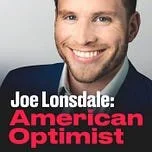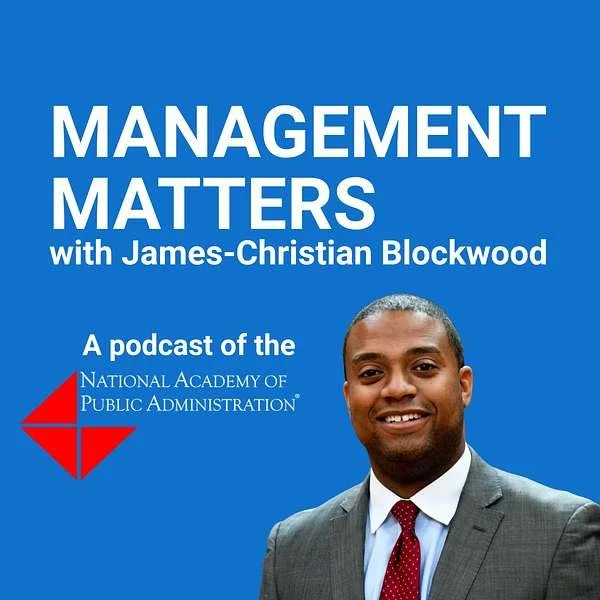The strength of America, I think, is our culture of self-determination. What we choose to do, and how we do it, is up to each of us. We can make a difference—to ourselves and our community. This sense of ownership creates what Tocqueville saw as “a superabundant force, and an energy which is inseparable from it.” It also creates a hopeful culture—the future can be better because we can make it better.
Americans’ confidence has eroded in recent decades. This is due in part to the intrusion of forces beyond any individual’s control—global markets that supplant jobs and opportunities; centralized bureaucracies that suffocate human instincts and interactions; and cultural clashes that dislodge community values.
Even Americans who are “doing well” feel pushed around.
For decades, Philip Howard has been sounding the alarm: our government is broken, and tinkering around the edges won’t work. We need a new operating system. How did it break? What do both parties get wrong? And what will it take to revive the American spirit?
In this conversation with host Joe Lonsdale, they begin with the genesis of the red tape state, and why Philip believes the collective guilt of the 1960s led to well-intentioned but ill-designed policies that broke the government. He explains how law began to supplant human judgment, politicians stopped making hard decisions, and governance was outsourced to an instruction manual run by the professional class. Next, they dive into Philip's new book, Saving Can-Do, beginning with what makes the American “can-do” attitude unique. Then, Philip offers solutions for reinstating human authority into our institutions. And finally, a new framework for enabling America to build again. Philip makes the compelling case that what our republic needs most of all is a return to accountability over compliance, amateurs over professionals, and liberty over safetyism.
Read MoreMost Americans think government is broken, but the prospects for reform are bleak—no matter which party is in control.
The Economist this week hosted an episode of its “Checks and Balance” podcast on what’s needed for America to break out of this doom loop. The format was unique, at least for the Economist: executive editor Charlotte Howard interviewed her father (me), and then discussed the interview with U.S. editor John Prideaux and Washington columnist James Bennet. For the record, this was not my idea and Charlotte reluctantly was pushed into it by her colleagues. I wish we did it all the time.
Fixing what’s broken doesn’t happen because the political dynamic is aimed at beating the other side—not making government work better.
Philip Howard is an outspoken authority on government reform whose books include The Death of Common Sense and Saving Can-Do. He is also co-host Charlotte Howard’s father. In a special episode aiming to reflect tetchy political discussions over Thanksgiving dinner, they discuss America’s bureaucratic morass and why escaping it is so difficult.
John Prideaux hosts with Charlotte Howard and James Bennet.
Read MoreLawyers usually like the law. The more the better. But in addition to his life as a lawyer, Philip Howard has made a second career out of criticizing the invasion of law into American society. In books like The Death of Common Sense, Life Without Lawyers and his latest, Saving Can-Do, Howard argues that a uncontrolled thicket of legal red tape is undermining innovation in America. The lawyer’s central thesis is against the law: America has morphed from a can-do nation into a can’t-do society where individual judgment has been replaced by legal central planning, and where citizens must ask lawyers for permission before acting.
Read MoreGrowth and innovation are back in fashion. This year’s Nobel Memorial Prize in economics, awarded to three leading scholars of “creative destruction,” makes it official. No less notably, in the US, the post-neoliberal center-left has lately adopted the neoliberal preference for deregulation in pursuit of progress. Abundance is all the rage.
Philip Howard must be pleased, if a little bewildered. For decades, in a series of excellent and widely praised books, he’s been explaining how a crazy excess of rules and litigation chokes growth. Policymakers have all but ignored him. His latest, Saving Can-Do, takes up the cause yet again. It’s very good: short, to the point and suddenly in tune with the times.
Read MoreAs our nation faces a profound moment of political disruption, neither party is offering a vision to overhaul America’s broken governance. In Saving Can-Do, Philip Howard offers a bold and simple governing vision: Replace red tape with responsibility and let Americans hold each other accountable.
At this book event, Philip, AEI’s Philip Wallach, and The Washington Post’s George Will discuss how scrapping the red-tape state can enable America to reclaim the power of its unique can-do culture.
Read More“Nothing that’s any good works by itself…You got to make the damn thing work.”
This practical wisdom of Thomas Edison applies to most meaningful life activities. Teachers, doctors, waiters, plumbers, ministers, inspectors, all confront situations where they have to decide what to do next. Even with miraculous technological tools, judgments are still needed to adapt to unforeseen circumstances, make tradeoffs, take risks, and make choices that are considered fair.
Americans broadly agree that government is broken. Our inability to modernize infrastructure, or provide quality education, or produce defense weaponry, presents an existential threat in a world threatened by totalitarian regimes that are not institutionally paralyzed.
Former Speaker Newt Gingrich talks with Philip Howard about his new book, ‘Saving Can-Do.’ Philip discusses the pervasive issue of bureaucratic red tape that has stifled common sense and effective governance since the 1960s. He argues that the legal system has become overly complex, with 150 million words in federal law and regulation, compared to the 7,500 words of the U.S. Constitution. Philip advocates for a multi-year effort to replace these cumbersome bureaucracies with simpler codes that empower individuals to use their judgment.
Read MorePhilip K. Howard, a graduate of Taft prep school, Yale and the University of Virginia School of Law, says he never wore “white bucks.” This 1950s campus fashion waned before he matriculated. Those buckskin shoes were popular among young blades destined to become “white-shoe lawyers” at prestigious “white-shoe law firms,” such as Covington & Burling, where Howard, 76, is senior counsel.
He also is a genteel inveigher against the coagulation of American society, which is saturated with law. In his new book “Saving Can-Do: How to Revive the Spirit of America,” he argues that law’s proper role is preventing transgressions by authorities, not micromanaging choices so minutely that red tape extinguishes individual responsibility and the social trust that individualism engenders.
Read MoreThis brief, accessible and powerfully persuasive book assesses the symptoms of our ailing polity and concludes that we are suffering from a widespread loss of agency, the lifeblood of any free society.
That loss begins and ends with a lack of trust. Some mid-20th-century activists and regulators worried that both government and the private sector in America were running needless risks that endangered individual rights and public health and safety. So they set about constraining the range of choices available to private and public decision makers, replacing individual discretion with legal frameworks that would make uncertain tradeoffs less necessary. “The post-1960s complex of rules, processes, and rights,” Mr. Howard argues, “has been designed with one overriding operational premise—to preempt human judgment.”
Read MoreAmericans increasingly feel like rats in a maze. Do this. Don’t say that. Did you comply with the rules? Is your paperwork in order? Can you fill out more and more of it for no discernible reason?
Governing systems were remade after the 1960s to replace human judgement (and authority) with a kind of legal software program. The origin story displays the best of motives--to preclude any more abuses such as racism and pollution. Because humans can make poor judgments, the theory went, it’s better to strain choices through a legal sieve of prescriptive rules, processes, and rights.
But it doesn’t work. Instead of enhancing freedom, law replaced freedom. Americans no longer feel free to do what they think is right or sensible. Doctors and nurses spend half the day filling out forms, teachers have lost control of the classroom, and employers no longer give job references or candid reviews.
Read MoreI have a new book, out this week, Saving Can-Do: How to Revive the Spirit of America. One reason America is fraying, I argue, is because of a root flaw in post-1960s law: the idea that law should make or validate correct choices. Law is everywhere—in thick rulebooks, years-long procedures, self-interested people pounding the table for their alleged rights ….
America’s energy comes from individual ownership of choices and values—not tiptoeing through the day with a little lawyer on our shoulders. The proper role of law is to define the scope of free choice by setting outer boundaries—no crime, no pollution, and so forth—not by extruding daily choices through the eye of a legal needle. Law is supposed to protect freedom, not replace freedom.
In Saving Can-Do, Common Good Chair Philip K. Howard unlocks the quandary of populist resentment and also of broken government.
America is flailing in legal quicksand. The solution is a new governing framework that allows Americans to roll up their sleeves and take responsibility. We must scrap the red tape state. What’s required is a multi-year effort to replace these massive failed bureaucracies with simpler codes that are activated by people using their judgment. As America approaches the 250th anniversary of the revolution, it’s time to reclaim the magic of America’s unique can-do culture.
Saving Can-Do was published by Rodin Books on September 23, 2025.
We may be in an incredibly important moment for reimagining and reinventing what government can be. On this episode of Management Matters with James-Christian Blockwood, we talk to Philip Howard, Founder and Chair of Common Good, about some of the possibilities of this consequential moment for government.
Read MoreAmerican exceptionalism is rooted in individual initiative. Americans have a cultural belief in self-determination. America is the place where people can make the best of themselves.
Over the past few decades, America’s can-do culture has been corroded by a sense of futility. The failures are clearly visible in institutional ineptitude—say, the inability to modernize infrastructure or to fix poor schools. But the cultural rot is more pernicious. Americans no longer believe we can make a difference, or build a better future. We feel disempowered. Watch what you say. Just follow the rules. Instead of striding towards our goals, Americans increasingly feel like rats in a maze. Many turn to MAGA.
China’s autocratic society comes to life in Breakneck, the new book by Dan Wang. Nothing gets in the way of public works. Subways go through buildings. High-speed rail lines are built seemingly overnight. Industrial dominance in solar panels and electric cars is the result of deliberate policy.
Breakage is common. Top-down mandates can’t adapt to unforeseen circumstances and market realities. Cities of apartment buildings remain empty. One provincial czar had a kind of genius for idiotic mega-projects, including a giant ski resort in a place without snow.
What’s most breathtaking, to me, is the state’s intrusion into personal lives.
Maybe it’s me, but the news cycle seems both terrifying and tedious. We’re treated to a steady diet of crises followed by reactions which create new crises. It’s as if we’re in a straitjacket, bouncing off today’s emergency instead of making deliberate choices that might lead to a coherent future.
In a thoughtful New York Times column, Ben Rhodes explains how “short-term compulsions blind us to the forces remaking our lives.” He characterizes Trump as seeking “short-term ‘wins’ at the expense of the future”—for example, ignoring unsustainable national debt, climate change, and other existential perils. But Rhodes says Democrats too are trapped in short-termism—“spend[ing] more time defending what is being lost than imagining what will take its place.”
Politics now has a dizzying quality. The roller-coaster of Trump policies―now we do this, now we do the opposite―is being matched by wild swings in the Democratic positions, led by socialist Zohran Mamdani's victory in the New York City mayoral primary. Just imagine, as liberal columnist Joe Klein mused, the staggering inefficiency of a municipal grocery store operating under union work rules: "Sorry, I only restock on Thursdays."
Centrist democrats are trying to mobilize an Abundance agenda to cut through red tape to build housing and infrastructure. That's a step in the right direction, but pruning the red tape jungle doesn't work by itself. Officials must have authority to make tradeoff judgments.
Aaron Renn sits down with Philip Howard to discuss the crippling bureaucratic red tape stifling America’s ability to build and innovate. From the New Deal’s rapid achievements to today’s endless legal labyrinths, Howard proposes a bold solution: a framework rooted in human responsibility and accountability to restore America’s can-do spirit.
Read More










